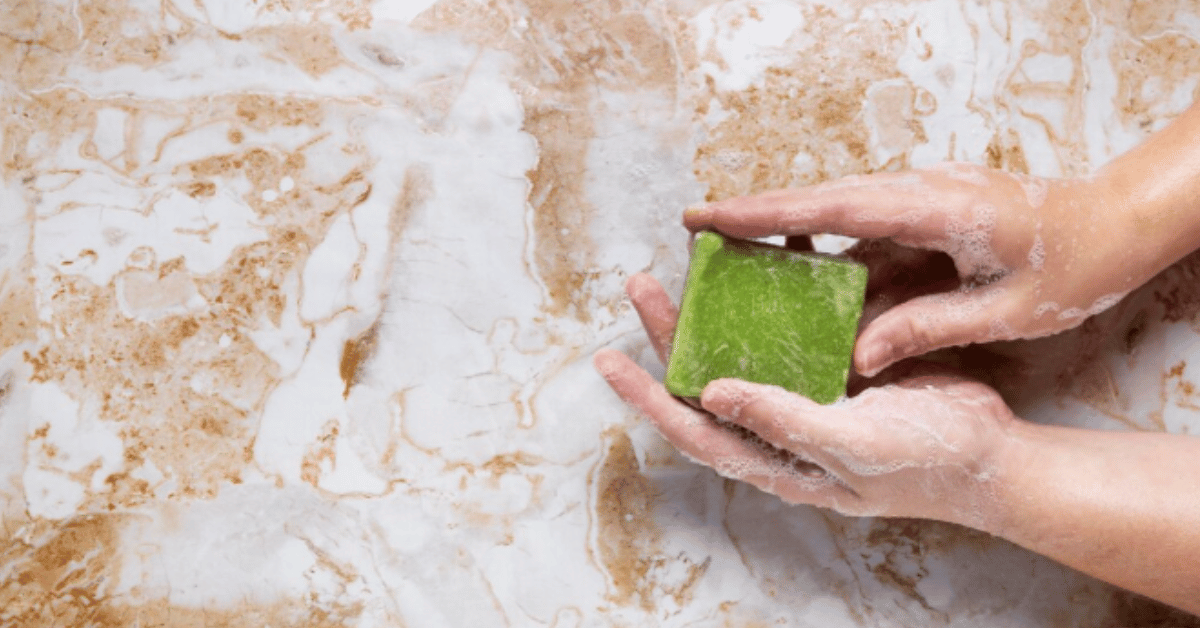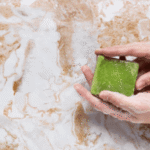Sulfur soap is one of the oldest yet most effective skincare solutions used across cultures for its medicinal and cosmetic benefits. It is widely recognized for its ability to manage acne, oily skin, fungal conditions, and other dermatological concerns, while also being accessible and affordable. The primary question searchers often have is: what exactly makes sulfur soap effective, and how does it benefit the skin in ways that modern cleansers or treatments may not? Within the first glance, sulfur soap stands out because of its antibacterial, keratolytic, and antifungal properties. That combination allows it to both cleanse and treat multiple skin conditions at once. This article explores sulfur soap in depth, from its history and chemical composition to its contemporary uses in dermatology and everyday skincare.
Over the centuries, sulfur soap has shifted from being a purely medicinal product to becoming a staple in beauty regimens. Ancient civilizations recognized sulfur’s healing ability, and it has been referenced in early medical texts for its skin-purifying qualities. Today, it is found in pharmacies, wellness stores, and even luxury skincare brands, demonstrating its adaptability across time. Unlike trendy products that rise and fall with marketing, sulfur soap has stood the test of centuries. People often describe it as a “low-cost dermatologist in a bar.” But while it has many advantages, sulfur soap is not a perfect fit for everyone. It can be drying, has a distinct smell, and may require careful use depending on skin type. In this guide, we examine sulfur soap’s pros and cons, its chemistry, how it compares to other skincare options, and what modern research says about its relevance today. As dermatologist Dr. Elaine Morris once stated, “The simplest compounds often yield the most complex benefits when used wisely.”
What is Sulfur Soap?
Sulfur soap is a cleansing bar or liquid soap infused with sulfur, a naturally occurring mineral found in volcanic regions, hot springs, and mineral deposits. The soap typically contains between 2% to 10% sulfur, combined with traditional soap bases such as glycerin or vegetable oils. The key to its effectiveness lies in sulfur’s unique properties: it has antibacterial qualities that reduce microbial presence on the skin, keratolytic action that helps shed dead skin cells, and antifungal behavior that makes it useful against yeast and fungal infections. These three actions work together, which is why sulfur soap is recommended for acne, seborrheic dermatitis, scabies, rosacea, and fungal conditions.
Historical Context of Sulfur in Skincare
The use of sulfur in skin treatments dates back thousands of years. Ancient Greeks and Romans bathed in sulfur-rich hot springs, believing the mineral purified the skin and healed infections. In Asia, particularly in Japan, sulfur baths became a cultural practice linked to both wellness and longevity. By the Middle Ages, sulfur was incorporated into medicinal ointments, and by the 19th century, sulfur soaps were commercially manufactured. Physicians praised them for controlling outbreaks of acne and scabies at a time when antibiotics did not exist. Even in modern dermatology, sulfur continues to be recommended, proving that this ancient remedy has retained its importance.
Chemical Properties of Sulfur in Soap
Sulfur itself is a yellow, brittle element with a distinctive odor when combined with moisture or other compounds. In soap, it undergoes chemical blending with fats and alkali, creating a cleansing product that slowly releases sulfur when applied to skin. The keratolytic property comes from sulfur’s ability to break down keratin, the protein found in dead skin cells. This allows clogged pores to open and reduces buildup that leads to acne or rough patches. Its antibacterial action is attributed to its ability to inhibit bacterial enzymes, while its antifungal nature comes from disrupting fungal cell membranes. In short, sulfur in soap acts like a multi-purpose defender of skin integrity.
Table 1: Common Uses of Sulfur Soap
| Skin Concern | How Sulfur Soap Helps | Recommended Use Frequency |
|---|---|---|
| Acne and pimples | Unclogs pores, reduces bacteria, lowers oil | 1–2 times daily |
| Oily skin | Balances excess sebum without harsh chemicals | Once daily |
| Rosacea | Soothes redness and reduces inflammation | Alternate days |
| Seborrheic dermatitis | Clears flakes, calms itching | 3–4 times weekly |
| Fungal infections | Targets yeast and fungal buildup | As prescribed |
| Scabies and mites | Destroys parasites with extended contact | Under medical direction |
Benefits of Sulfur Soap
Sulfur soap provides a wide spectrum of benefits, particularly for those dealing with persistent skin problems. For acne sufferers, it is an affordable option that reduces breakouts by preventing clogged pores and lowering bacterial presence. It is also gentle compared to some chemical treatments like benzoyl peroxide or retinoids, which may irritate sensitive skin. Another key benefit is its role in treating fungal-related issues such as dandruff or tinea infections. Unlike specialized shampoos or creams, sulfur soap offers an all-in-one approach. Additionally, its oil-absorbing nature makes it useful for those with oily or combination skin. Many users also find that it reduces redness and irritation, making it suitable for chronic conditions like rosacea. As one dermatologist remarked, “Sulfur may not be glamorous, but its consistency in delivering results makes it timeless.”
Drawbacks and Side Effects
While sulfur soap is beneficial, it has its limitations. One of the most common complaints is its odor, often compared to rotten eggs due to sulfur’s natural smell. This can be off-putting, especially for daily use. Another drawback is dryness; sulfur strips away excess oil, which may cause flakiness or tightness in sensitive skin types. Overuse can disrupt the natural skin barrier, leading to irritation. Individuals with eczema or extremely dry skin should use sulfur soap cautiously or avoid it altogether. It is also less effective for deep cystic acne compared to stronger medical treatments. Side effects are usually mild, but users must balance frequency and monitor skin response.
Table 2: Pros and Cons of Sulfur Soap
| Pros | Cons |
|---|---|
| Affordable and accessible | Strong odor |
| Effective for multiple skin conditions | May cause dryness |
| Gentle compared to harsher treatments | Not ideal for eczema sufferers |
| Antibacterial, antifungal, keratolytic | Limited effect on deep cystic acne |
| Long historical use with proven results | Requires consistency for visible results |
Modern Dermatology and Sulfur Soap
In contemporary dermatology, sulfur soap is considered a supportive treatment rather than a primary solution. Dermatologists often recommend it as part of a broader skincare routine, especially for patients who cannot tolerate harsher medications. Its natural antimicrobial effects make it especially valuable in regions where access to prescription treatments is limited. Research continues to validate sulfur’s effectiveness in reducing surface-level acne and fungal presence, though its role in more complex conditions remains secondary. What makes sulfur stand out is its ability to complement other therapies without major side effects, positioning it as a bridge between natural remedies and clinical medicine.
Daily Use and Recommendations
For most people, sulfur soaps can be safely used once or twice daily, depending on skin tolerance. Dermatologists suggest starting slowly, perhaps every other day, and gradually increasing use. It should be applied with lukewarm water, lathered gently, and left on the skin for a minute or two before rinsing. Following up with a moisturizer is essential to prevent dryness. For acne, consistency is key; results may appear after 3–6 weeks. For fungal or parasitic conditions, medical supervision is advised since treatment protocols vary.
Comparisons with Other Skincare Treatments
When compared to modern cleansers containing salicylic acid or glycolic acid, sulfur soap is milder but less powerful. Unlike benzoyl peroxide, which can rapidly reduce acne but cause peeling, sulfur works more slowly but gently. Against antifungal shampoos or creams, sulfur soap has the advantage of versatility but lacks targeted potency. Its greatest strength lies in being an inexpensive, multi-purpose option that supports a wide range of conditions. In skincare, balance often matters more than intensity, which is where sulfur finds its place.
Quotes on Sulfur Soap
- “The simplest compounds often yield the most complex benefits when used wisely.” – Dr. Elaine Morris
- “Sulfur may not be glamorous, but its consistency in delivering results makes it timeless.” – Dermatology Review Panel
- “Sometimes, traditional remedies offer the most reliable foundation for modern skincare practices.” – Dr. Ayesha Khan
Conclusion
Sulfur soaps remains one of the most fascinating examples of a simple mineral-based product offering broad dermatological benefits. From ancient sulfur baths to modern pharmaceutical formulations, its journey reflects both history and practicality. It is affordable, effective for common skin problems, and gentle compared to chemical-heavy alternatives. Yet it requires mindful use to avoid dryness and is not a one-size-fits-all solution. For individuals struggling with acne, oiliness, dandruff, or fungal infections, sulfur soap provides a reliable, time-tested ally. In today’s era of high-cost skincare regimens and aggressive marketing, sulfur soaps stands apart as a reminder that sometimes, traditional remedies carry enduring wisdom. As skincare continues to evolve, sulfur soaps will likely remain relevant, bridging the gap between past practices and modern needs.
FAQs
Q1: Can sulfur soap be used daily without side effects?
Yes, but it depends on skin type. Oily skin generally tolerates daily use, while sensitive skin may require alternate days to avoid dryness.
Q2: Does sulfur soap cure acne permanently?
No, it manages acne but does not cure it permanently. Consistent use reduces breakouts, but acne may return if underlying causes persist.
Q3: Can sulfur soap be used on the scalp for dandruff?
Yes, it can help reduce dandruff and seborrheic dermatitis, though it should not replace medicated shampoos if symptoms are severe.
Q4: Is sulfur soap safe for children?
It may be used for certain conditions in children, but always consult a pediatric dermatologist before applying it on young skin.
Q5: How long before results are visible with sulfur soap?
Most users notice improvement within 3–6 weeks of consistent use, depending on the severity of the skin condition.











